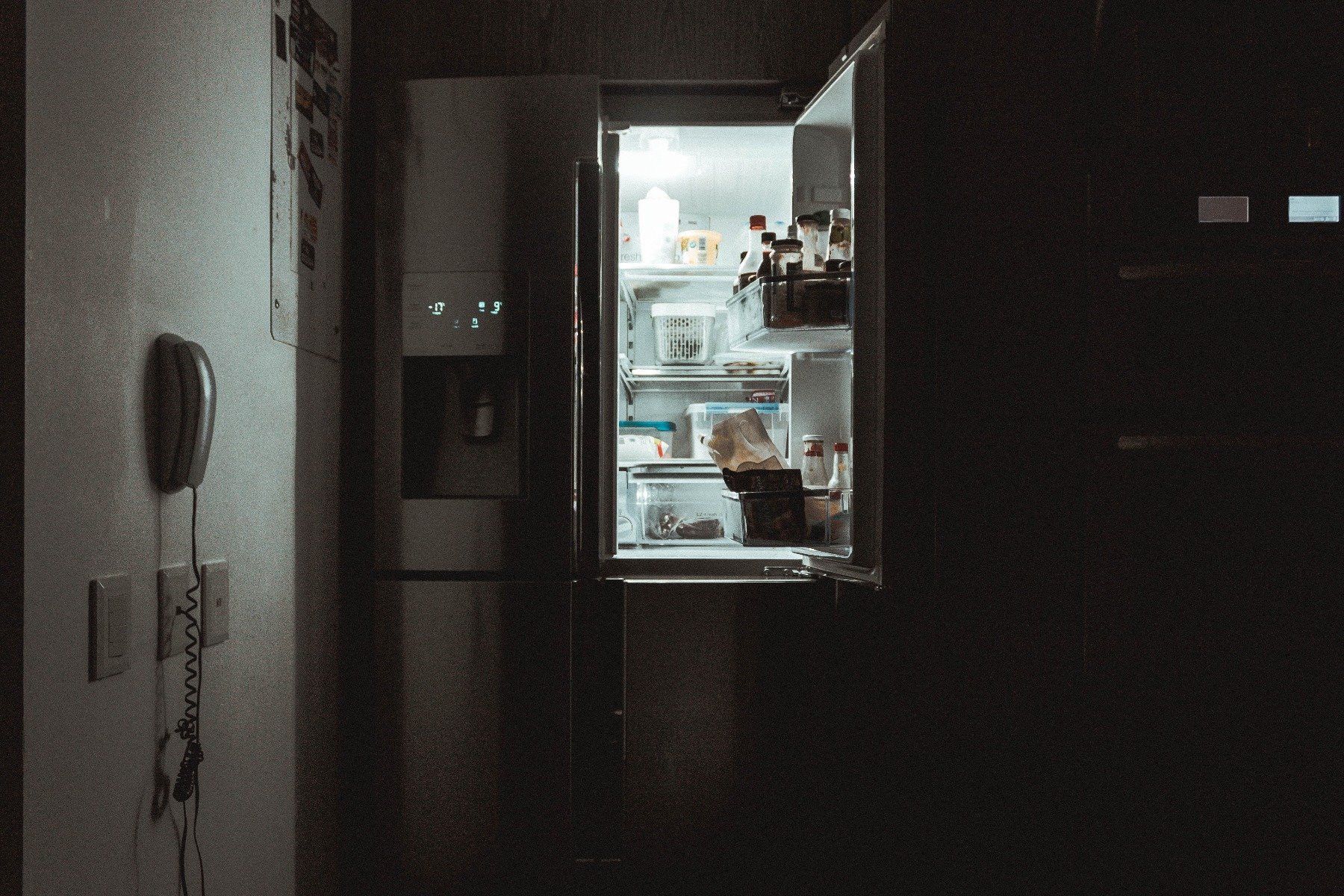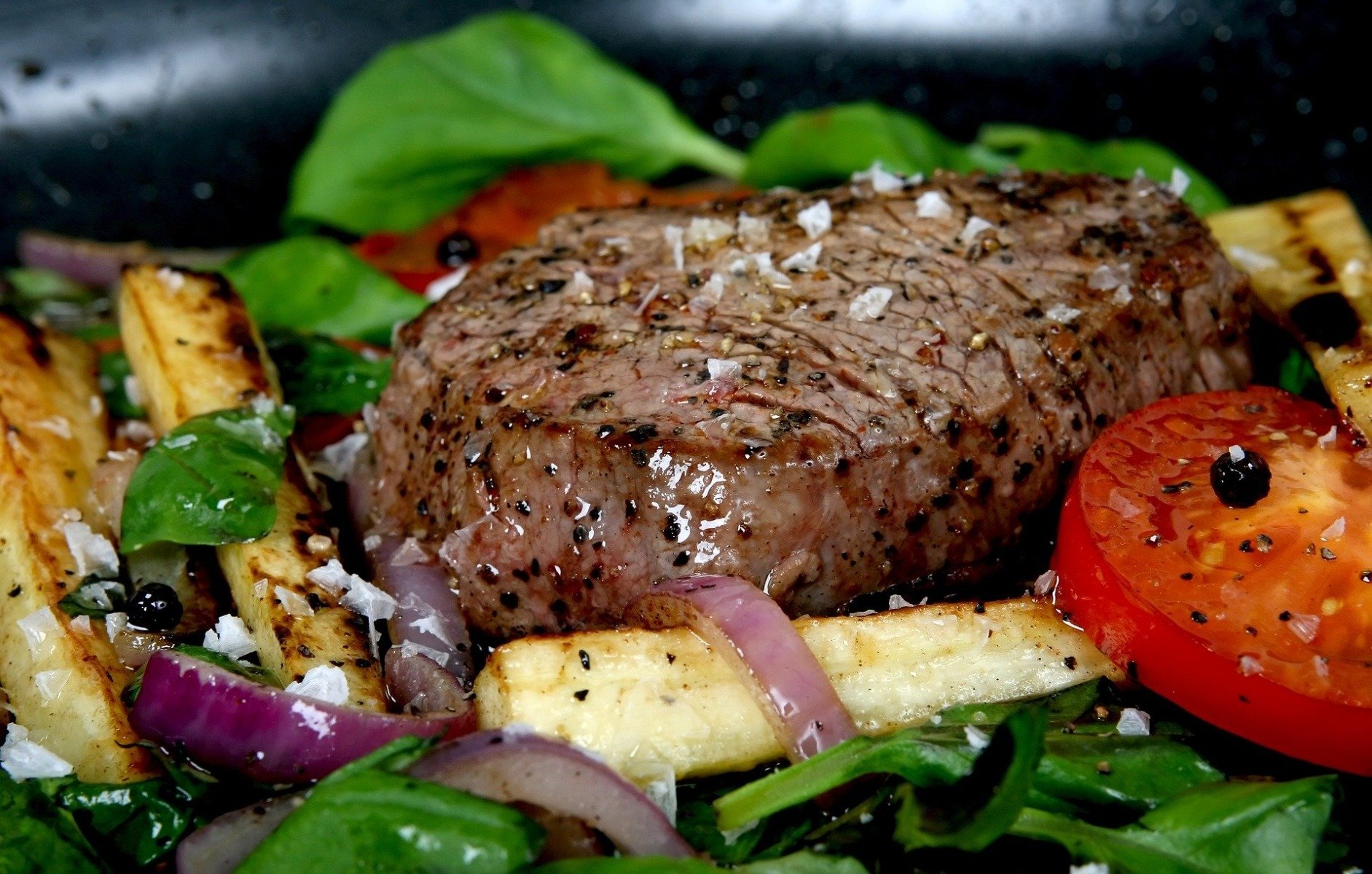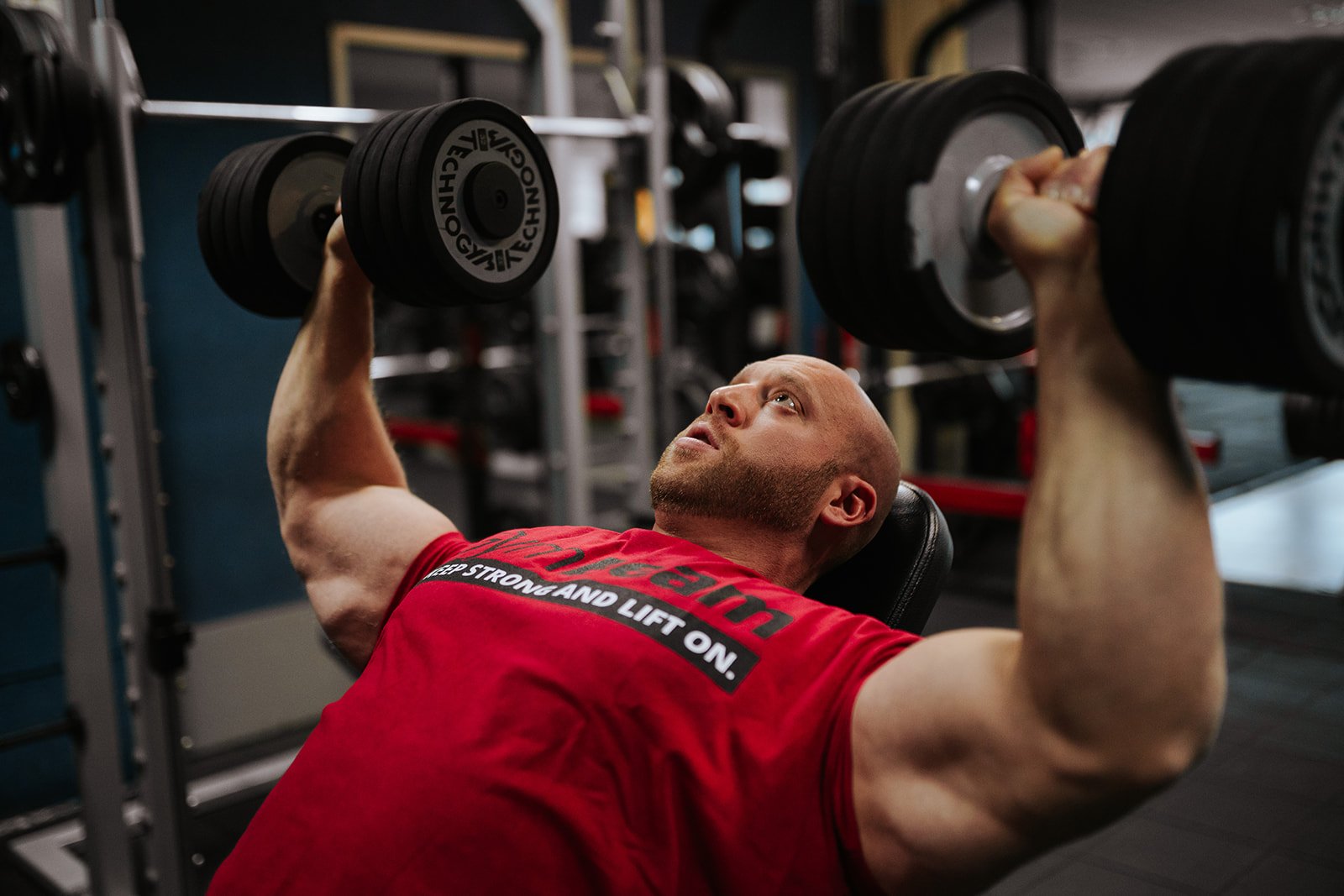Table of Contents
Recently, increased protein content has been a very popular component of many products. It is no longer a myth that higher protein intake is only needed for athletes and active people who are looking for muscle growth. The emphasis on protein has its foundation for daily functioning, maintaining muscle mass or losing weight.
Protein – an important macronutrient for weight loss
The term protein comes from the Greek word prōteios and means primary, basic. Together with fats, carbohydrates and water, they are among the macronutrients that a person needs for the proper functioning of the body. Proteins are large molecules whose chains are composed of combinations of amino acids. They are indeed the basis in the human body, because no protein in the body cannot do any cell. Their functions can be divided into three basic areas [1] [2] [3] [4]:
- securing the development and growth of muscles, bones, hair and skin
- production of antibodies, hormones and other essential substances
- energy source for cells and tissues in the body
The human body obtains protein from diet or in form of nutritional supplements. Foods with the highest protein content include [1]:
- meat – all types of “red meat” and poultry
- fish and seafood
- eggs and dairy products
- leguminous plants and nuts
- some types of cereal

Protein sources can be divided into three basic categories according to the content of essential amino acids [2]:
- Full-valued– contains all the essential amino acids and includes animal products such as meat, eggs and dairy products.
- Non-full-valued– contain at least one amino acid, mainly plant proteins such as peas, legumes or cereals.
- Additional– this is a combination of two or more foods that contain non-full-valued proteins. By combining them, one can get a full source of protein.
You might be interested in these products:
4 reasons to take protein for weight loss
Weight loss is a process designed to change your lifestyle to reduce fat stores and overall weight. Changing diet is an important part of this transformation and should not be done without sufficient protein intake. Enough protein in the diet is important for several reasons.
1. Produces and regulates hormones
Several proteins are needed for the production of hormones, thanks to which the organs and cells can communicate with each other. The brain also receives signals through hormones whose levels vary according to how they eat. Increased protein intake raises satiety hormone levels – GLP-1, peptide YY and cholecystokinin. In addition, it reduces the level of grelin, the hormone of hunger. These hormonal changes lead to a significant reduction in hunger, which is an important factor during weight loss. [5] [15]
2. Reduces appetite
Hormone regulation leads to appetite changes and the need for calorie intake. Increased protein intake reduces daily caloric intake, according to several studies. According to a survey from 2005, increasing the calories from protein to 30% caused a 441-calorie decrease in full-day intake. [16]

Proteins can also affect one of the biggest problems in maintaining a diet, as they affect appetite and evening overeating. Evening visits to the refrigerator are a frequent reason for failure in weight reduction. Researchers found that as the calories from protein increased to 25%, the appetite decreases by 60% and the desire for late evening snacks by 50%. [16]
3. Maintains and repairs muscles
During the weight loss process, you are not only losing fat stores, but also reducing muscle mass is a common side effect. Another possible side effect is a decrease in metabolic frequency, which means that you burn less calories than before losing weight. Research has confirmed that protein uptake has a positive effect on the metabolic frequency adjustment. The ideal solution for reducing fat without losing muscle is a combination of higher protein intake and strength training. [16]
4. Supports calories burning
The human body uses some of the calories taken to digest and metabolize food, this phenomenon is called the thermal effect of food. Research does not coincide with the exact values of the thermal effect, but it is clear that proteins have a significantly higher thermal effect than carbohydrates and fats. In 2004 research was conducted to measure the effect of nutrients on thermogenesis. According to the results, the thermal effect of proteins is up to 20-30 %, while for carbohydrates it is only 5 – 10% and for fats 0 – 3%. This means that 20-30% of the calories from protein will burn your metabolism and digestion process. [16]
Increased protein intake is not a high protein diet
High protein diets have enjoyed considerable popularity for some time, and this diet is associated with increased protein intake. However, having enough protein does not mean that you are on a high-protein diet. A higher proportion of calories from protein is essential for this type of diet, but it also often involves a reduction in carbohydrates. The most commonly reduced foods and meals include processed foods, pastries, sweets, pasta and rice. [5] [6]
There are several dietary plans that can be classified as high protein, probably the best known type is the Atkins diet. This type of diet was discovered by Dr. Atkins in the 1970s and its goal is to get the organism into ketosis. According to this diet you can consume any amount of protein and fat, while you should significantly reduce carbohydrate intake. Consequently, carbohydrate deficiency should cause the metabolism to burn fat instead of glucose. [5] [6]

The effects of a high-protein diet and its effect on muscle growth and / or weight loss have been the subject of many researches. Several studies have shown the importance of such diets over a short period of time, but long-term intervals require further research. Some studies suggest health problems in long-term adherence to this diet. The authors of the 2014 study warn against a possible increase in the acidic environment in the kidneys and the risk of health problems due to higher intake of animal fats. [5] [15]
Another cause for concern on a high-protein diet is reducing carbohydrates, which can lead to health problems. Lack of carbohydrates in the diet is at risk for children and young people who may cause malnutrition. Meanwhile, most research suggests that a high-protein diet is beneficial in reducing weight, at least for a short period. The ideal solution for long-term dietary adjustment is not to eliminate carbohydrates completely, but to consume them in adequate quantities to achieve the goals. [5] [15]
What type of protein is best for weight loss?
There are several types of protein on the market in the form of nutritional supplements. Each is a great resource for achieving weight loss or other goals. There are some differences between them that may suit you better, so we list the most common protein sources in form of a protein powder.
1. Whey protein
Whey protein is one of the most popular protein sources that contain all the essential amino acids and is therefore a full-valued protein source. It is a mixture of whey protein, which is a by-product of cheese production. Whey protein has a high quality, is well digestable and low in lactose. It is marketed in the form of a concentrate containing 39-89% protein and an isolate or hydrolyzate with 90-95% protein content. [8] [9] [10]
The 2018 meta-analysis includes 9 studies on the effect of whey protein on weight loss in overweight and obese people. In whey protein groups, the results show a significant reduction in total weight, non-fat as well as fat body mass. In addition, improvements have been found in the cardiovascular system, particularly blood pressure, cholesterol or blood sugar levels. [18] [19]
The effect of whey protein on satiety improvement was mapped in a study whose participants were divided into groups according to protein type and amount. The aim of the research was to compare the effect of breakfasts with whey, soy or casein protein content with 10% or 25% protein in food. At 10% protein levels, whey protein reduced hunger more than other sources. In 25% of the proteins, there were no differences in satiety, but whey protein induced the strongest reactions with GLP-1 hormone and insulin. Based on the results, it can be seen that differences in satiety between proteins occur when the values of certain amino acids exceed certain thresholds. This means that if you make flakes for breakfast and put protein in it, at 10% of the content, whey protein will fill you the most. If the protein content is 25%, the source of the protein does not matter, since the amino acid values are higher in all cases. [18] [20]
In a further meta-analysis of several studies, the effect of protein use in combination with strength training was confirmed. Participants, who were exercising with weights and at the same time taking whey protein, were measured muscle weight gain in upper and lower body. [8] Whey protein is the most popular source of protein because it is easily available, it contains all essential amino acids and is well soluble. Want to learn more about the benefits of whey protein? Read our article – What protein to choose? Whey concentrate, isolate or hydrolyzate?

2. Casein
In addition to whey protein, milk also produces casein, which accounts for 80% of the total protein content of milk. While whey protein is water soluble, casein is an insoluble portion of milk proteins. It is a full-valued protein source that differs from whey protein at the time the human body spends it. Longer casein digestion times result in a longer satiety feeling, which is beneficial in reducing body weight. [8] [11]
3. Egg protein
The egg protein is produced from egg whites which are separated and then dehydrated. One dose of 30 g represents approximately 105 calories and 23 grams of protein. Egg protein is an ideal alternative for people with milk intolerance or paleo diet. It is a source of vitamins and minerals found in eggs and also low in fat and carbohydrates. [8] [12]
4. Soy protein
Soy protein is a plant source of all essential amino acids and is therefore classified as a full-valued protein. It is a product that is suitable for vegetarians, vegans and people looking for an alternative to protein from animal sources. [8]

5. Rice protein
Rice protein is a plant protein source that is considered to be non-full-valued because it contains only a small amount of lysine. Research was conducted in 2013 to compare the weight loss effect of rice and whey protein. The subjects were divided into two groups and tasked to consume 48 g of protein during the training days. [8] [13] [14]
Participants practiced 3 times a week for 8 weeks and consumed protein immediately after training. At the end of the research period, there was a significant change in fat, muscle mass and strength in both groups. The results confirmed that rice protein is as effective in reducing weight as whey protein. [8] [13] [14]
How much protein should be taken during weight loss?
The recommended daily protein intake differs depending on whether your goal is muscle growth or weight loss. Another important parameter is your body weight. For a better idea, see the tables where you will find daily protein intake per 1 kg of weight and conversion to average weight. [7]
| 1,2 g/kg | |
| Obese person | 1,2 – 1,5 g/kg |
| Active person with a purpose to maintain weight, performance and regeneration of organism | 1,4 – 1,6 g/kg |
| Active person to build muscle mass | 1,4 – 2,4 g/kg |
| Active person to reduce weight | 1,8 – 2,7 g/kg |
| Person without physical activity | 96 g | 72 g |
| Active person with a purpose to maintain weight, performance and regeneration of organism | 112 – 128 g | 84 – 96 g |
| Active person to build muscle mass | 112 – 192 g | 84 – 144 g |
| Active person to reduce weight | 144 – 216 g | 108 – 162 g |

Hints, tips and final information
- Protein drinks are not a full substitute for a balanced diet. Do not forget to take other nutrients, such as fiber, vitamins, minerals, and include in your diet the appropriate amount of complex carbohydrates and healthy fats.
- Protein-rich foods are often a source of other nutrients, such as type B vitamins, iron or zinc.
- Some protein drinks may also contain various sweeteners, so check your carbohydrate content in addition to protein intake.
- Protein intake is independent of gender. Lower protein doses in women are due to their lower weight and possibly different fitness goals.
Modern diets and magical means are constantly appearing in the media to rid you of excess fat. But the most natural help for weight loss are proteins that support your metabolism, muscle growth and stop the evening overeating. Whether you opt for dietary protein or nutritional supplements, you will ensure that the processes in your body work properly, while adjusting your weight.
We believe that you have learned everything important about proteins and their importance during weight loss. Do you want to let your friends know about this topic? Feel free to support the article by sharing.
[1] Jenna Fletcher - What are the 6 essential nutrients? – https://www.medicalnewstoday.com/articles/326132.php#protein
[2] Yvette Brazier - How much protein does a person need? – https://www.medicalnewstoday.com/articles/196279.php
[3] Hobart Swan - The Complete Guide to Protein – https://www.bodybuilding.com/content/the-complete-guide-to-protein.html
[4] protein – https://www.merriam-webster.com/dictionary/protein
[5] Jenna Fletcher - What to eat on a high-protein diet – https://www.medicalnewstoday.com/articles/324915.php
[6] Ivette Brazier - Atkins diet: What is it and should I try it? – https://www.medicalnewstoday.com/articles/7379.php#what_is_it
[7] Alex Leaf - How much protein do you need per day? – https://examine.com/nutrition/how-much-protein-do-you-need/#summary1
[8] Shannon Johnson - What is the best protein powder for weight loss? – https://www.medicalnewstoday.com/articles/326523.php
[9] Kamal Patel - Whey Protein – https://examine.com/supplements/whey-protein/
[10] Joseph Nordqvist - What are the benefits and risks of whey protein? – https://www.medicalnewstoday.com/articles/263371.php
[11] Kamal Patel - Casein – https://examine.com/supplements/casein-protein/
[12] Keri Gans - There's a New Protein Powder On the Block – https://www.fitnessmagazine.com/weight-loss/eating/theres-a-new-protein-powder-on-the-block/
[13] Mary Jane Brown - What Is the Best Type of Protein for Weight Loss? – https://www.healthline.com/nutrition/best-protein-for-weight-loss
[14] Jordan M Joy, Ryan P Lowery, Jacob M Wilson, Martin Purpura, Eduardo O De Souza, Stephanie MC Wilson, Douglas S Kalman, Joshua E Dudeck, Ralf Jäger - The effects of 8 weeks of whey or rice protein supplementation on body composition and exercise performance – https://nutritionj.biomedcentral.com/articles/10.1186/1475-2891-12-86
[15] Dominik H Pesta and Varman T Samuel - A high-protein diet for reducing body fat: mechanisms and possible caveats – https://www.ncbi.nlm.nih.gov/pmc/articles/PMC4258944/
[16] Kris Gunnars - How Protein Can Help You Lose Weight Naturally – https://www.healthline.com/nutrition/how-protein-can-help-you-lose-weight
[17] Zawn Villines - What to eat in the protein shake diet for weight loss – https://www.medicalnewstoday.com/articles/319252.php
[18] Gavin Van De Walle - The 7 Best Protein Powders for Weight Loss – https://www.healthline.com/nutrition/best-protein-powders-for-weight-loss
[19] Wirunsawanya K., Upala S., Jaruvongvanich V., Sanguankeo A. - Whey Protein Supplementation Improves Body Composition and Cardiovascular Risk Factors in Overweight and Obese Patients: A Systematic Review and Meta-Analysis – https://www.ncbi.nlm.nih.gov/pubmed/29087242
[20] Veldhorst MA, Nieuwenhuizen AG, Hochstenbach-Waelen A, van Vught AJ, Westerterp KR, Engelen MP, Brummer RJ, Deutz NE, Westerterp-Plantenga MS - Dose-dependent satiating effect of whey relative to casein or soy. – https://www.ncbi.nlm.nih.gov/pubmed/19385022/

